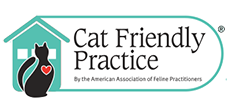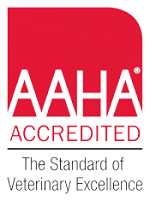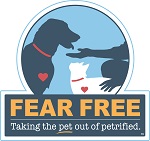So, you are getting a new puppy! This is a very exciting time for sure, but also a time when adequate information and preparation will be very helpful. Hopefully you have done your research to decide which breed will best suit your lifestyle, energy level and personality beforehand. Once you have made the decision to bring a puppy into your life, there are several things to think about and prepare for.
Housetraining is something that will need to be started right away. It is helpful to have a plan in mind and make sure everyone in the household is on the same page. Dedicating a small area outside as the “potty spot” is helpful in getting the puppy to learn when they are outside to eliminate versus when they are outside to play. While just sending the puppy outside to do it’s duty may be tempting, it is very important to go out with the puppy, on a leash so you can praise and reward immediately after the puppy has eliminated. Waiting until the puppy comes to the door to come in is too late. The puppy will associate the praise and reward with coming inside – not for going potty. When doing house training the puppy should be taken outside every 30-60 minutes to eliminate. The goal is to avoid as many “accidents” in the house as possible. When the puppy is in the house it should be watched carefully for clues that it may be considering elimination. Sniffing the ground, walking slowly or in circles, etc.. are often first clues that the puppy needs to “go”. Take the puppy outside the moment you feel that it may be thinking about going. If the puppy starts to squat to eliminate make a loud noise to startle it (not scare it – just to hopefully stop the thought of eliminating) and take it outside. Repetition and time will bring results, but expect accidents to happen. Never punish a puppy or rub their nose in their accident as this will just scare and confuse them. Clean it up and move on.
Getting your puppy used to being in a crate will help with housetraining and also in keeping the puppy safe when you aren’t able to supervise it. Puppies and young dogs should not be left unsupervised loose in your house for any length of time. Think of your puppy like a baby or toddler. The amount of trouble they can get into in a small amount of time is incredible and dangerous. Never use a crate for punishment – you want the association to be with good things. Always give a small treat and encourage the puppy to go into it’s crate on it’s own. Giving a food puzzle (make sure it is something safe) or a stuffed Kong or similar toy is helpful and will keep the puppy busy in the crate. Freezing the contents of a Kong type toy makes it last longer. You can use small amounts of peanut butter (without Xylitol), squeeze cheese, canned dog food or vanilla yogurt to “stuff” the toy. Keep a couple of these pre-made in your freezer so you always have one available. Make sure that the amount of time your puppy/dog spends in the crate is age appropriate. If not, make plans for someone to come in during the day to give potty breaks and playtime or consider doggy day care.
Socializing your puppy with different people, situations and other animals is very important during the first few months. Puppies that are isolated and not exposed to different things will often grow up afraid and unsure of new experiences. You never want to force or scare your puppy but make sure to look for opportunities to carefully introduce your puppy to different things, places and people in a positive way. Plan ahead so that you can make new experiences fun, safe and positive for the puppy. Getting your puppy used to things it may encounter at the vet, groomer or when you need to medicate is very important as well. Get your puppy used to being gently restrained, having it’s nails trimmed, teeth brushed, ears cleaned and being bathed. All of these things should become normal for the puppy over time with practice and making sure they are positive experiences. Use lots of praise and yummy treats and work up slowly to anything the puppy is apprehensive about.
Puppy training classes can be very helpful for not only basic training but also socialization and learning to listen to commands with distractions. If you do training only at home in a controlled environment, training often goes out the window when visitors come to the house or you take the puppy somewhere new. Teaching your puppy to listen to and obey commands in a variety of places and circumstances with different distractions (other animals, noises, people, etc..) is important to having a well trained adult dog. A trainer will be able to help with certain areas that you are having difficulty with and can offer a perspective from the dog’s point of view that you may not have considered. Understanding why your puppy is or isn’t doing something can be key in correcting the problem. We tend to look at things from a human perspective which may be completely different from the dog’s perspective.
If you have children at home, make sure they know how to interact safely and gently with the puppy. Never allow young children to be with any dog unsupervised. Get them involved as much as is age appropriate with care and training and teach them proper play with the puppy. Never allow young children to pick up and carry a puppy and never allow them to sit on or “ride” a puppy or dog – even a large dog. Hugging can feel restraining and scary to some dogs and should not be encouraged.
Decide right off the bat what rules you will want for your dog as an adult. If you don’t want them to go up onto the furniture, don’t cuddle with them on the couch or take them to bed when they are young. If you don’t want them begging at the dining room table, don’t feed them from the table. If your puppy is jumping on guests when it is small it may be cute, but if the puppy grows up to be 60# it may not be so cute anymore. Start teaching the behaviors that you want as early as possible. These behaviors will be much more difficult to break later if they have been allowed in the beginning.
As always, we are here to offer basic advice and point you in the right direction. An excellent book for all new puppy owners, is Puppy Primer by Patricia B. McConnell. It is easy to read with practical, easy to understand information and has everything you need to give your puppy a good start.




